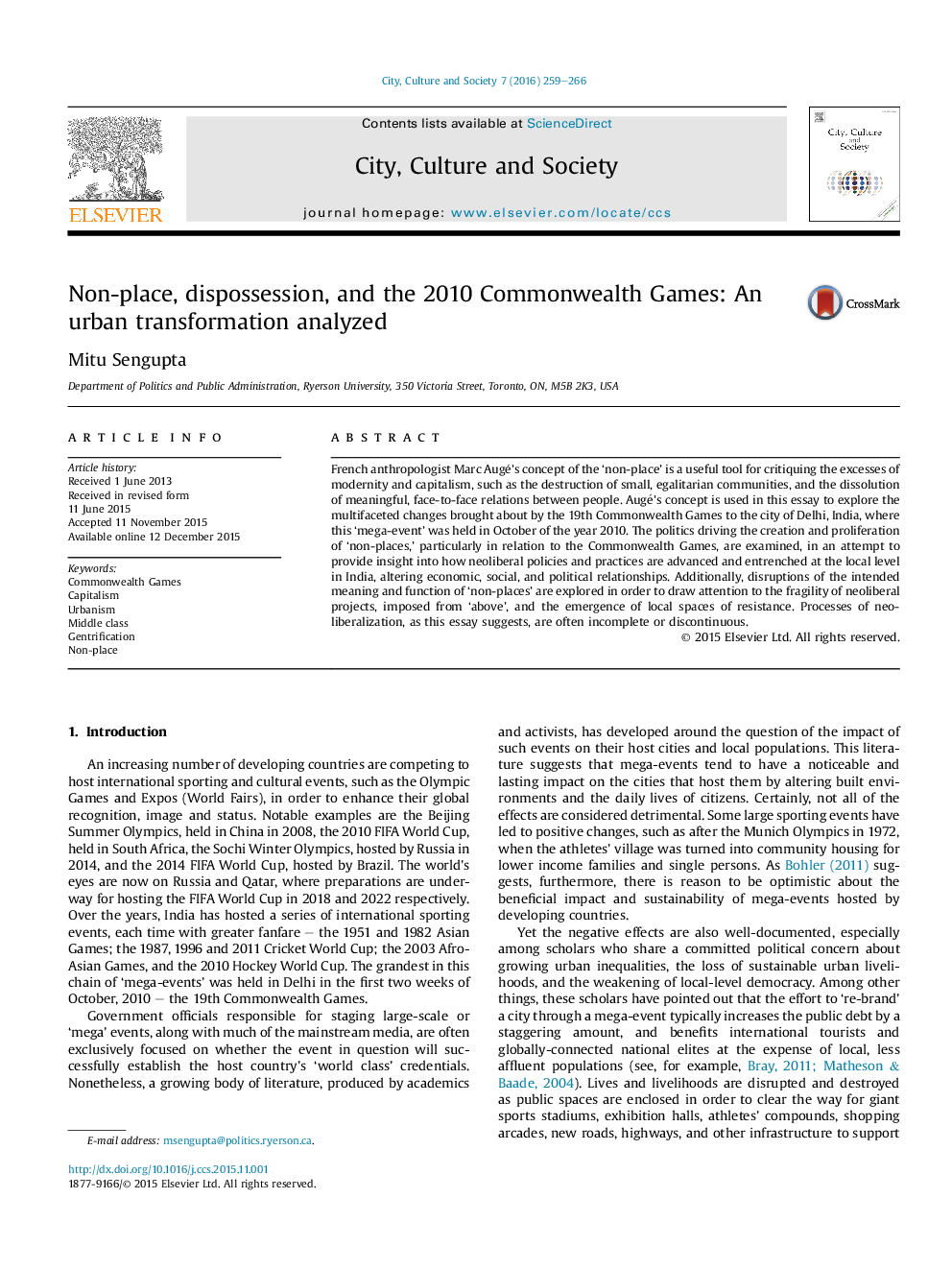| Article ID | Journal | Published Year | Pages | File Type |
|---|---|---|---|---|
| 5048169 | City, Culture and Society | 2016 | 8 Pages |
â¢Focus on a mega-event that enhanced a developing country's global status.â¢Auge's idea of 'non-place' used to examine how the event altered the city of Delhi.â¢Harvey's idea of 'accumulation and dispossession' used to politicize 'non-place'.â¢Transgressions of the intended meaning of 'non-places' also examined.
French anthropologist Marc Augé's concept of the 'non-place' is a useful tool for critiquing the excesses of modernity and capitalism, such as the destruction of small, egalitarian communities, and the dissolution of meaningful, face-to-face relations between people. Augé's concept is used in this essay to explore the multifaceted changes brought about by the 19th Commonwealth Games to the city of Delhi, India, where this 'mega-event' was held in October of the year 2010. The politics driving the creation and proliferation of 'non-places,' particularly in relation to the Commonwealth Games, are examined, in an attempt to provide insight into how neoliberal policies and practices are advanced and entrenched at the local level in India, altering economic, social, and political relationships. Additionally, disruptions of the intended meaning and function of 'non-places' are explored in order to draw attention to the fragility of neoliberal projects, imposed from 'above', and the emergence of local spaces of resistance. Processes of neoliberalization, as this essay suggests, are often incomplete or discontinuous.
